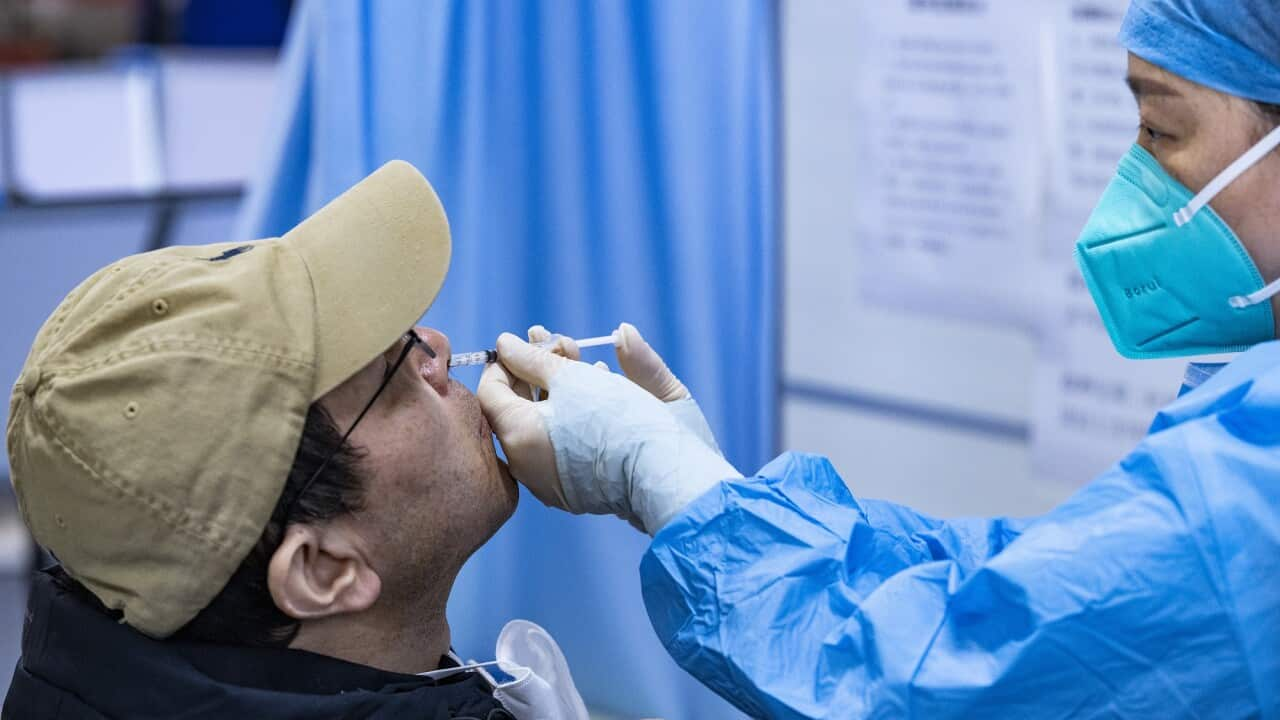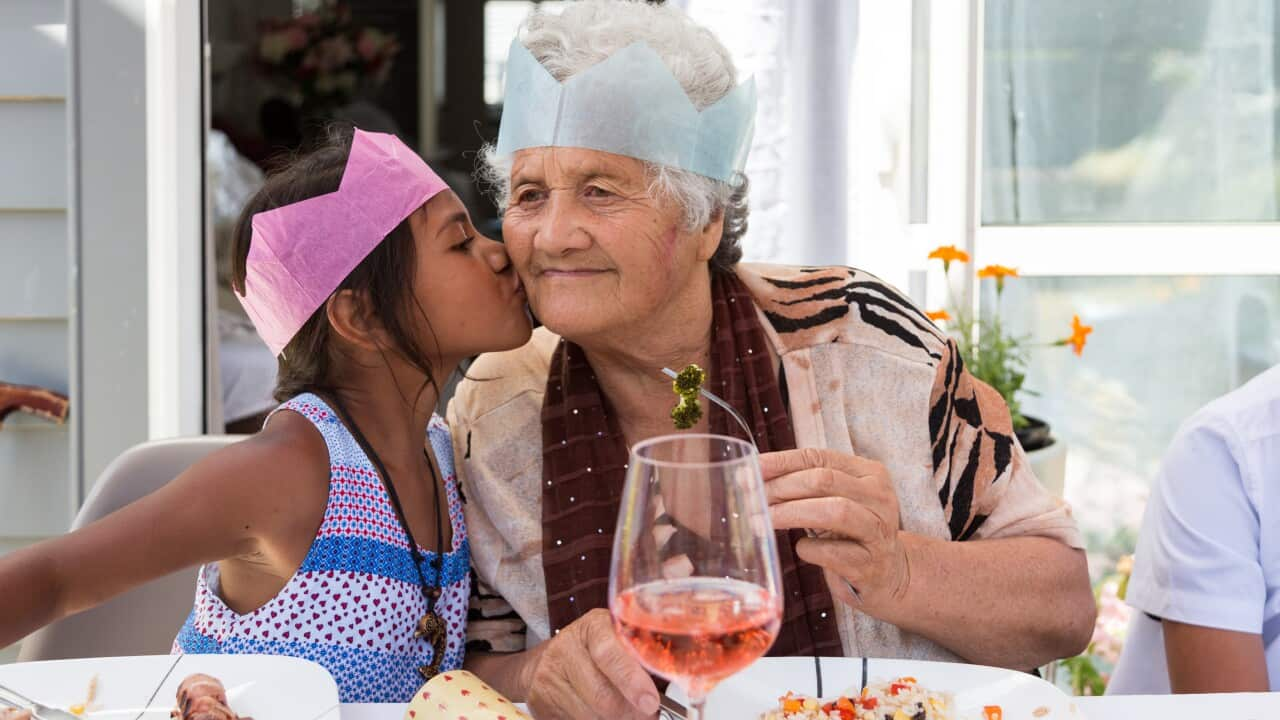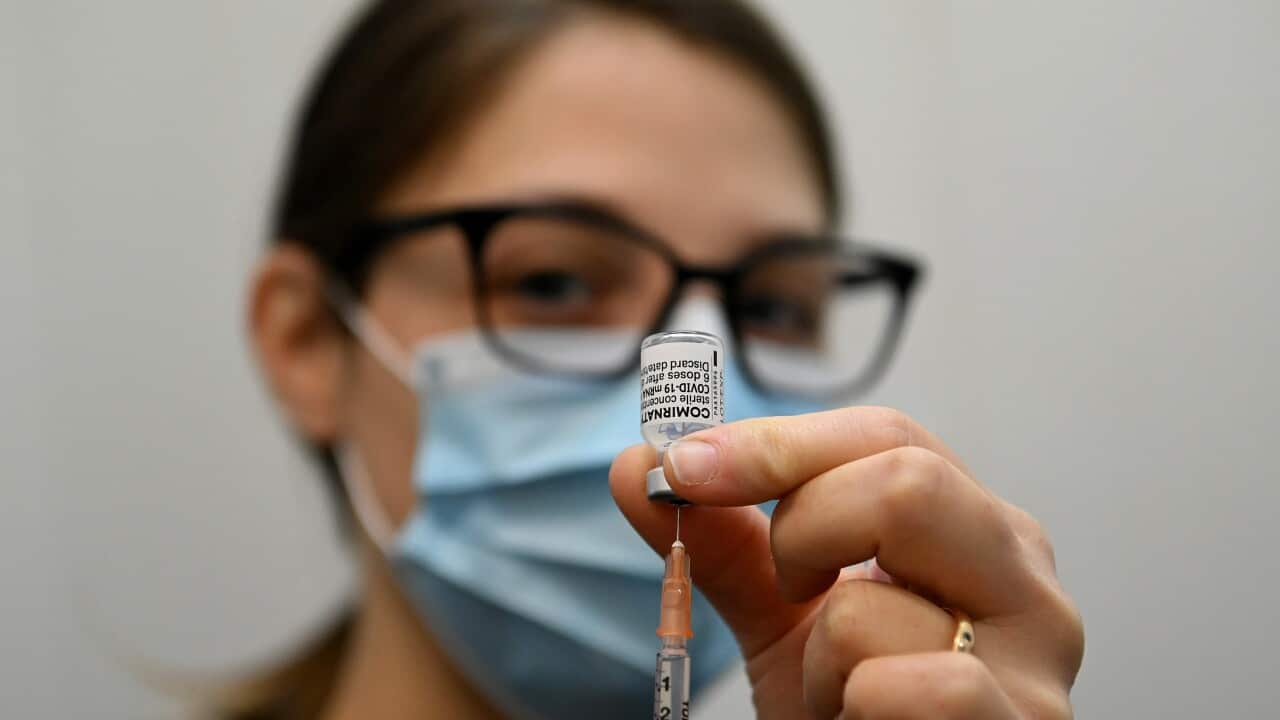KEY POINTS
- Australian researchers have received a funding boost to develop a COVID-19 nasal spray vaccine.
- The $1 million in funding will allow scientists to develop a vaccine that could be tested in human trials in 2024.
- There are a number of challenges to overcome in developing an effective COVID-19 nasal spray vaccine.
The mission of Australian researchers to develop a COVID-19 nasal spray to block virus infection has received a boost with government funding.
A grant of nearly $1 million from the NSW COVID-19 Vaccine Acceleration Research Grants Program was awarded to Sydney researchers based out of the Centenary Institute and the University of Sydney.
The team includes Professor Warwick Britton, Dr Anneliese Ashhurst and Professor Richard Payne.
How does the nasal spray vaccine work?
Developing a nasal spray vaccine to provide protection for the respiratory system is new territory for researchers. It builds upon work done to treat the flu and tuberculosis.
The project's chief investigator, Professor Britton, said the work represents a new direction in COVID-19 vaccine development - shifting away from the task of limiting the most severe disease impacts to stopping infection in the first place.
"The difference with a vaccine delivered to the nose is that it protects at the site of infection. There's less experience with [a nasal spray], although there is accumulating experience worldwide," he told SBS News.

Professor Warwick Britton said the funding boost will allow the team to work towards human trials of the COVID-19 nasal spray in Australia in 2024. Source: Supplied / Centenary Institute
Professor Britton said the team carefully considered the different vaccine technologies and how it could be delivered as a nasal spray, deciding against the use of inactivated forms of the virus — the method used in China's Sinovac and Sinopharm vaccines.
The research team opted to use a surface protein to encourage the cells in the nasal passage to generate an immune response. This is similar to the technology used in the American-developed Novavax vaccine.
"We think a protein and the right kind of immune stimulant is the best way to go for a nasal vaccine - and that's the study which we're pursuing," he said.
Globally, more than 100 vaccines in the .
What does the early research show?
Professor Britton and his colleagues outlined the mechanism for how a COVID-19 vaccine might work in a nasal spray using mice in a research study in November.
He said there will need to be work to see if the findings hold for humans, but so far the results look promising.
In the study on mice, the team looked at the immune system changes after six mice had a COVID vaccine administered through the nose.
Three doses were administered two weeks apart. The vaccine contained a protein spike called Pam2Cys, which was designed to induce "spike-specific neutralising antibody responses".
Compared to the control group, the authors found a significant result: complete protection against infection and "sterilising lung immunity" had been established at the eight-week mark.
This is a much sought-after goal in the development of COVID-19 nasal sprays.
What's the verdict - how effective are COVID-19 nasal sprays in humans?
At this stage, globally, detailed data from large-scale human trials has not been released.
Professor Britton said once safety and efficacy in human populations is established, then a number of population groups would see particular benefit from the cheaper cost, convenience and less invasive method of vaccine delivery.
Younger children, particularly those not comfortable with needles, would be one population group that could benefit, he said.
Another group are those with weakened immune systems who do not get the same level of immune protection from vaccines compared to the general population.
"That then involves problems of repeatedly immunising people (to strengthen the protection). If we have a vaccine that can stimulate immunity but in a much simpler, safer and acceptable route of delivery - yes, we think that's a real advantage."
He said he expects human trials in Australia to be underway in 2024, with the roll-out to Australians to follow in the couple of years after that.
The timeline would depend on support from regulators, governments and pharmaceutical companies.
"I think we've shown with COVID that we can do things much more quickly than they have been in the past. And I think we need to maintain that momentum," he said.
What impact could this have on getting the upper hand in the pandemic?
It also has the potential to reduce the population-wide disease burden arising from virus reinfection and long COVID.
Professor Britton said the results from human trials will be crucial in unpacking the full scope of benefits in reducing transmission, but cautioned the nasal spray alone will not eliminate the virus completely.
He said the goal is to reduce virus transmission levels in the community.
"I wouldn't be that confident to say that this vaccine alone will eliminate the virus. I think what has happened around the world is the virus has become endemic - it's switched to something which circulates in the community (as a constant presence)," he said.
"And there are these new variants. We, and others, are also working on ways to make a vaccine against multiple variants."













